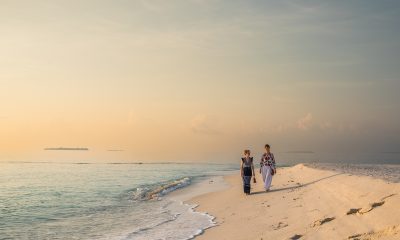Featured
Soneva-funded lab at Maldives airport to offer coronavirus tests for tourists

A laboratory to test tourists for the novel coronavirus is being established at an international airport in an ultra-luxury tourism zone in the northern part of Maldives.
Mohamed Rizvi, Managing Director of Island Aviation Services Limited (IAS), told a parliamentary committee Wednesday that Soneva, which owns luxury resorts in the Maldives, is building a lab at the airport located on the island of Maafaru in Noonu atoll.
The Polymerase chain reaction (PCR) lab will be completed by June 25 and be ready for testing as soon it is certified by the health ministry and Health Protection Agency (HPA), he said.
“Soneva is funding and overseeing the entire process of establishing the lab. This will be an added selling point for tourists,” Rizwi said.
Soneva currently runs two resorts in the Maldives: Soneva Fushi in Baa atoll and Soneva Jani in Noonu atoll. The world-leading luxury resort operator also operates luxury yacht Soneva in Aqua in Maldives, and Soneva Kiri resort in Thailand.
Despite a lab being established at the Maafaru airport, tests will be voluntary.
Authorities in Maldives have rolled back harsh restrictions, including mandatory on-arrival coronavirus testing and 14-day quarantine for all visitors, as well as fees proposed for reopening the country’s borders.
Meanwhile, the airport operator is readying the Maafaru airport for international arrivals in July.
The Abdu Dhabi-funded international airport was specifically developed to cater to high net worth individuals who want to arrive there directly and travel to one of the ultra-luxury resorts in the atoll for their holiday.
But the airport lacked the required equipment, as well as customs and immigration capabilities to handle international arrivals.
Aviation authorities in Maldives are exploring the possibility of allowing private jets to directly land at airports other than the main airport, as the island nation anticipates luxury travellers to be the first to visit when it reopens its borders in July.
Velana International Airport is the main port of entry for private jets at the moment, but once cleared they can fly to other airports that can cater to private jets.
The government has not singled out the other airports being considered for private jet landing, but it is likely that the Maafaru airport will be permitted to cater to jets.
The Maldives is preparing to reopen its borders to visitors in July.
The coronavirus outbreak has hit the Maldivian economy hard, as travel restrictions and other preventive measures affect the country’s lucrative tourism industry, which contributes the bulk of the island nation’s state revenue and foreign reserves.
All international airlines have suspended scheduled operations to the Maldives, as the island nation enforced a blanket suspension of on-arrival visa in late March in a bid to combat the spread of the novel coronavirus.
Before the pandemic, the government had been bullish about tourism prospects, targeting two million, high-spending holidaymakers this year after last year’s record 1.7 million.
However, tourist arrivals saw a year-over-year decline of 22.8 per cent in the first 10 days of March. Officials say the number of tourist arrivals to the Maldives could drop by half in 2020.
With arrival numbers falling and the visa suspension in effect, several resorts across the Maldives had been closed.
Tourism has been the bedrock of the Maldives’ economic success. The $5 billion-dollar economy grew by 6.7 per cent in 2018 with tourism generating 60 per cent of foreign income.
However, the government is at present projecting a possible 13 per cent economic contraction this year — an estimated $778 million hit.
On March 8, Maldives reported its first cases of the novel coronavirus, as two hotel employees tested positive for Covid-19 at a luxury resort in the archipelago.
Eighteen more cases — all foreigners working or staying resorts and liveaboard vessels except five Maldivians who had returned from abroad — were later identified.
A six-case cluster of locals, detected in capital Male on April 15, confirmed community transmission of the coronavirus. Several more clusters have since been identified, bringing the total number of confirmed case in the Maldives to 2,120.
Eight deaths have been reported and 1,677 have made full recoveries.
The Maldives announced a state of public health emergency on March 12, the first such declaration under a recent public health protection law.
The public health emergency declaration allowed the government to introduce a series of unprecedented restrictive and social distancing measures, including stay-at-home orders in capital Male and its suburbs, a ban on inter-island transport and public gatherings across the country, and a nationwide closing of government offices, schools, colleges and universities.
Non-essential services and public places in the capital such as gyms, cinemas and parks were also shut.
Restaurants and cafes in the capital were asked to stop dine-in service and switch to takeaway and delivery.
A nationwide shutdown of all guesthouses, city hotels and spa facilities located on inhabited islands was also ordered.
These measures allowed authorities to contain the outbreak.
More than half of the people who contracted the virus have recovered and daily recoveries have over taken the number of new infections detected per day.
The restrictions are now being eased in phases, with the second phase lasting at least until June end.
Photo: An Airbus A321 aircraft operated by flag carrier Maldivian, which is owned by Island Aviation Services Limited (IAS), is seen parked at Maafaru airport on June 16, 2020. PHOTO/ IAS
Awards
Atmosphere Core earns triple honours at Layalina Editor’s Choice Awards
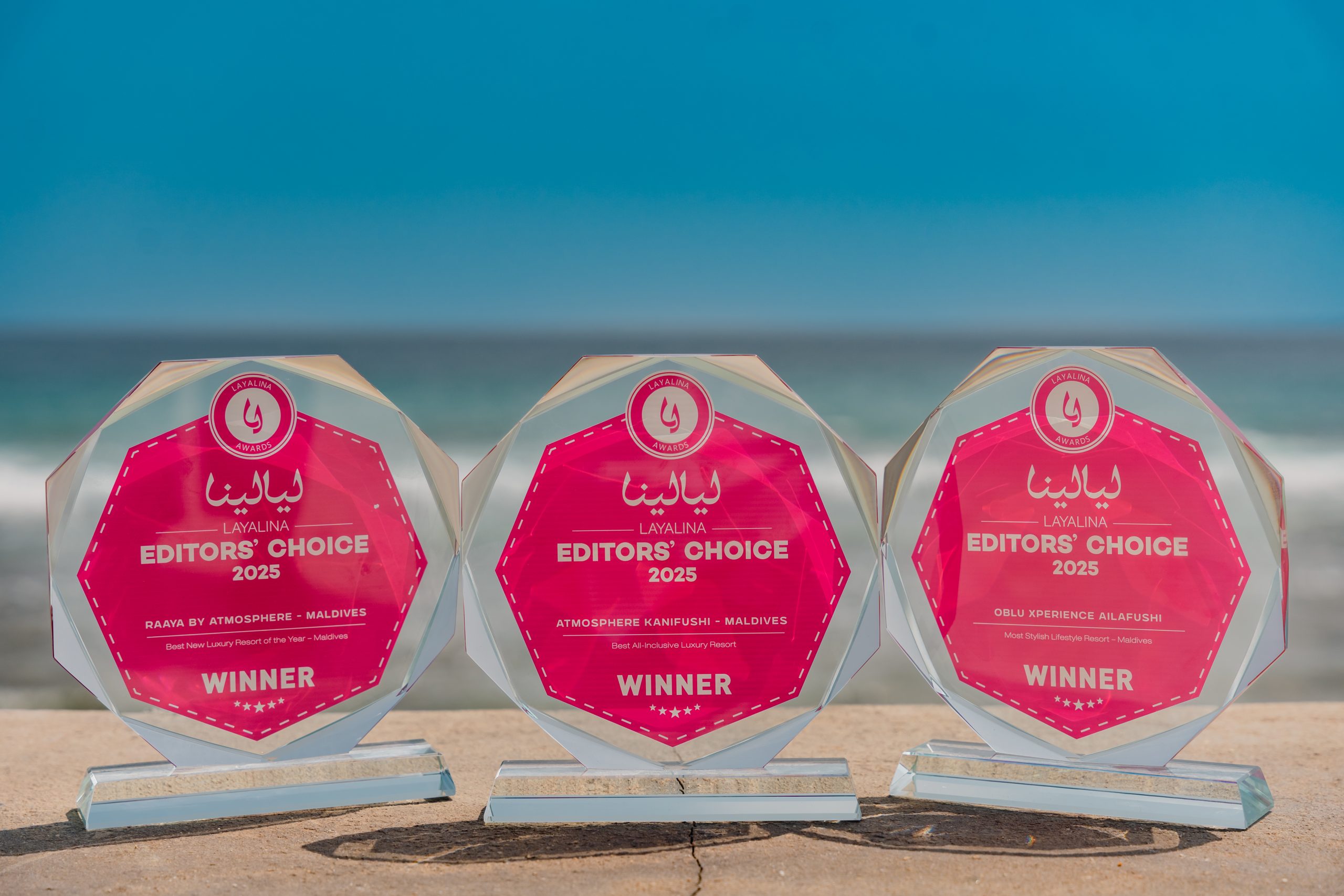
Atmosphere Core concluded 2025 with a strong industry showing, securing three major honours at the Layalina Editor’s Choice Awards 2025 for RAAYA by Atmosphere, Atmosphere Kanifushi Maldives and OBLU XPERIENCE Ailafushi. The accolades underscore the group’s ability to deliver clearly differentiated resort concepts for diverse traveller profiles, while maintaining a consistent emphasis on quality, comfort and guest satisfaction across its portfolio.
At the awards, RAAYA by Atmosphere was named Best New Luxury Resort of the Year – Maldives. Atmosphere Kanifushi Maldives received the title of Best All-Inclusive Luxury Resort, while OBLU XPERIENCE Ailafushi was recognised as Most Stylish Resort – Maldives. The honours are based on Layalina’s independent editorial assessment and established quality benchmarks, celebrating excellence across luxury hospitality, all-inclusive offerings and lifestyle-led design. Layalina is a leading Arab lifestyle publication under 7awi Media Group, with a strong readership and influence across the GCC and wider region.
Collectively, the awards highlight Atmosphere Core’s understanding of evolving travel expectations, delivering experiences that are thoughtful, well-crafted and easy to enjoy, whether guests are seeking tranquillity, variety or social energy.
Each of the recognised resorts brings a distinct identity to the group’s Maldivian portfolio. RAAYA by Atmosphere, located in the Raa Atoll, is defined by its serene environment and castaway-artist concept, encouraging guests to slow down and reconnect through nature, creativity and adventure. Atmosphere Kanifushi continues to stand out for its scale and consistency, offering a generous all-inclusive experience through the Kanifushi Plan™, expansive villas and a long, natural island setting that appeals to both families and couples. In contrast, OBLU XPERIENCE Ailafushi delivers a more dynamic island escape, characterised by contemporary design and a lively social atmosphere that resonates with travellers drawn to shared spaces, movement and modern aesthetics. Together, the accolades reflect a carefully curated portfolio designed to cater to a wide spectrum of travel moods and preferences.
Commenting on the achievement, Ashwin Handa, Chief Operating Officer of Atmosphere Core, said the group was honoured to receive the Layalina Editor’s Choice Awards 2025, recognising the three resorts across distinct categories. He noted that the recognition reflects the company’s carefully curated experiences, shaped by a strong sense of product, space and genuine care, and credited the passion and commitment of the teams, as well as the continued trust of guests, for the achievement.
Central to these successes is Atmosphere Core’s philosophy of the Joy of Giving, which positions hospitality around care, generosity and attention to detail. This approach informs destinations that feel closely connected to their natural surroundings and supports bespoke experiences that anticipate guest needs. The result, the group says, is a style of hospitality that is welcoming, effortless and personal, creating meaningful moments that endure beyond the stay itself.
Featured
The Standard, Maldives brings Lunar New Year energy to Raa Atoll

The Standard, Maldives will mark the Lunar New Year this February with a week-long celebration that invites guests to swap urban festivities for the turquoise waters of the Raa Atoll. Taking place from 17 to 22 February, the programme will transform the island resort into a festive setting that blends time-honoured traditions with the brand’s playful and contemporary character.
Designed to move beyond a conventional island escape, the celebrations will open with lively visual touches, including jumping stilts and fortune cookies, setting the tone for a week where Maldivian tranquillity meets the spirit of East Asian culture. Throughout the programme, guests will be immersed in a series of experiences that combine culinary creativity, entertainment and cultural expression.
Food takes centre stage in the Lunar New Year offering, with a diverse line-up of dining events curated to engage all the senses. Highlights include an Asian Street Food buffet inspired by classic Chinese motifs, alongside more refined beachfront experiences such as five-course Crab Night and Lobster Night dinners at Kula Beach. Interactive elements are also woven into the programme, with Tangyuan Time at Joos Café inviting families to prepare traditional sweet glutinous rice balls together, while younger guests can participate in a dedicated mocktail-making masterclass.
Evenings at the resort will be defined by high-energy entertainment and cultural performances. Todis Beach will host LED and fire shows, complemented by special Chinese dance performances that illuminate the shoreline after dark. Adding a local dimension to the celebrations, Maldivian Boduberu drumming will feature prominently, creating a rhythmic fusion of regional and international traditions. For guests seeking a more relaxed pace, the programme also includes a Lunar New Year Movie Night at the main pool and a Bingo Night at Todis Bar.
Commenting on the celebrations, Sonika Adlakha, Commercial Director of The Standard, Maldives, said the aim was to create a Lunar New Year experience that feels both authentic and adventurous. She noted that by combining the dynamic energy of street food markets and fire shows with the calm luxury of a Maldivian retreat, the resort is offering guests a distinctive way to welcome the Year of the Horse.
To complement the festivities, the resort is offering a Premium All-Inclusive Package, designed to provide seamless access to the week’s dining and entertainment programme. The package includes the full range of culinary experiences, from Asian Street Food stalls to themed buffets at Kula, as well as a selection of premium spirits, cocktails and refreshments. This offering allows guests to fully immerse themselves in the celebrations while enjoying the freedom to experience the Lunar New Year at The Standard, Maldives without limits.
Featured
Four Seasons Maldives brings Fire Horse energy to Lunar New Year celebrations
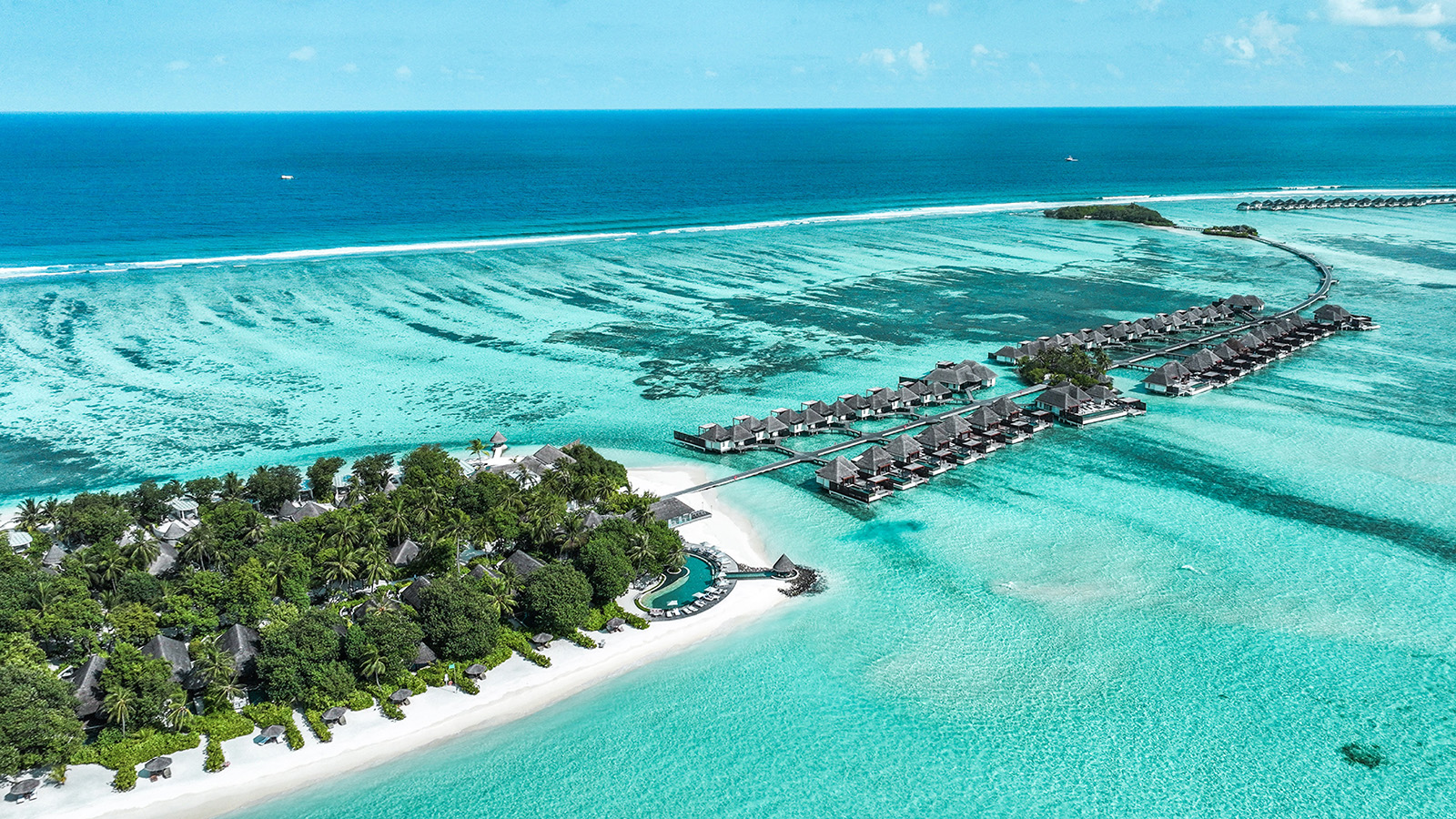
Four Seasons Resorts Maldives will welcome the Year of the Fire Horse with a week of Lunar New Year celebrations across Landaa Giraavaru and Kuda Huraa. Taking place from 16 to 24 February 2026, the programme will see both islands animated by the vibrant energy associated with this rare zodiac year.
Bold and spirited, the Fire Horse symbolises momentum, confidence and fresh beginnings. The celebrations are designed to reflect these qualities through a blend of cultural tradition, island elegance and family-focused experiences, positioning the Maldives as a fitting setting for the festive season.
Marking a first for the Maldives, the resorts will host an exclusive pop-up by Beijing’s Michelin-recognised Baiweiyuan Dumpling Restaurant, operating concurrently at both islands. Long celebrated in Beijing for its handmade dumplings and comforting soups, Baiweiyuan will present a menu featuring signature pork and chive dumplings, beef and onion fillings, and vegetarian options such as egg and tomato. Cold starters, including soy-braised pork trotter, will complement the experience.
Prepared fresh to order, the dumplings introduce an authentic taste of Beijing to the Indian Ocean, offering a culinary highlight that reflects the warmth and generosity associated with the Fire Horse.
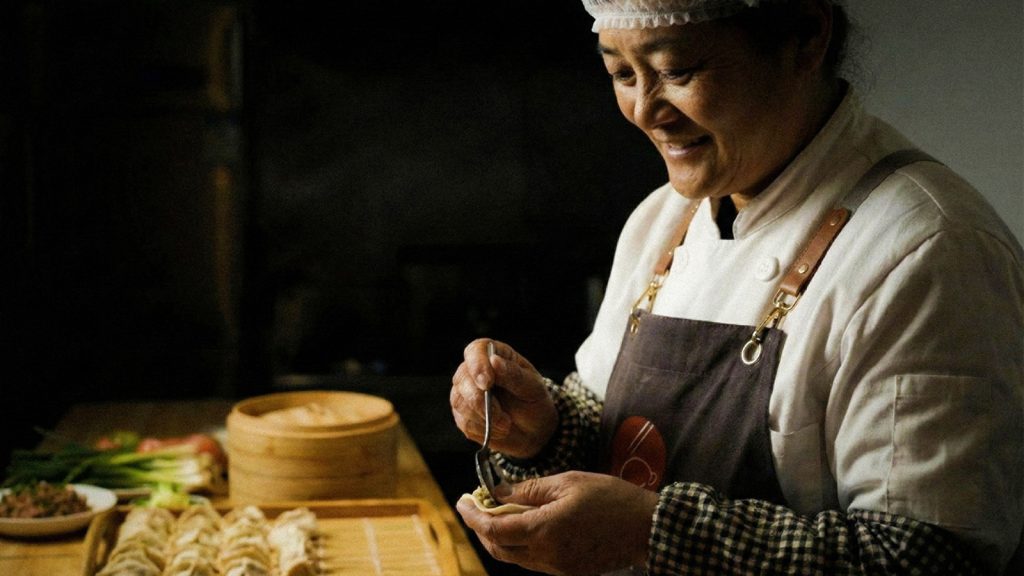
Lunar New Year at Kuda Huraa
16–24 February 2026
At Kuda Huraa, Lunar New Year celebrations will unfold throughout the week in a lively, festival-style programme. Events begin with a Reunion Dinner at Café Huraa, followed by themed dining evenings, outdoor cinema screenings, a Pool Party and a Pop-Up Asian Market.
Evenings will include experiences such as a Secret Beach BBQ under the stars, a Mediterranean Market at Reef Club and an Asian Buffet at Café Huraa. Baiweiyuan’s dumpling pop-up will be available daily, allowing guests to enjoy the flavours of Beijing throughout the celebrations.
Kuda Huraa highlights include:
- Reunion Dinner on 16 February
- Family Feast Lunch, Seafood Night and Asian Buffet
- Secret Beach BBQ and Mediterranean Market
- Pool Party with DJ on 18 February
- Pop-Up Asian Market and outdoor movie nights
- Daily Baiweiyuan Dumpling pop-up
The Kuda Mas Kids Club will also host a two-week Fire Horse–inspired festival for younger guests, featuring activities such as lantern painting, snorkelling adventures, arts and crafts, dumpling making, tie-dye workshops, karaoke evenings and beach games. The programme is designed to encourage creativity, confidence and fun.
Lunar New Year at Landaa Giraavaru
16 February 2026
Landaa Giraavaru will welcome the New Year with a poolside celebration from 7.00pm to 10.30pm, featuring a Dragon Dance, live DJ and lantern-lit setting around the main pool. A Yu Sheng prosperity toss will symbolise abundance and good fortune, while live cooking stations will showcase celebratory flavours prepared by the resort’s culinary team.
Landaa Giraavaru highlights include:
- Poolside Lunar New Year celebration
- Dragon Dance performance
- Live DJ and festive ambience
- Yu Sheng prosperity toss
- Culture-inspired welcome drinks
- Baiweiyuan Dumpling pop-up available throughout the week
Across both islands, Lunar New Year at Four Seasons Resorts Maldives is designed to bring families and friends together in the spirit of prosperity, connection and shared celebration. Guests are invited to welcome the Year of the Fire Horse through traditions that honour luck, abundance and meaningful togetherness.
-
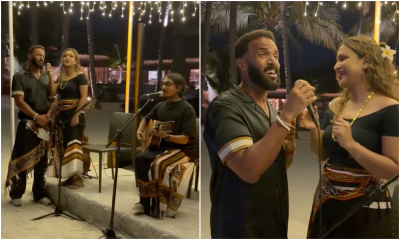
 Entertainment6 days ago
Entertainment6 days agoCraig David shares emotional Maldives moment after ‘Rise & Fall’ surprise at resort dinner
-
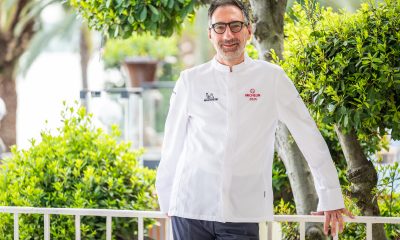
 Food1 week ago
Food1 week agoMichelin-starred Italian chef Maurizio Bufi brings Lake Garda flavours to The Ritz-Carlton Maldives, Fari Islands
-
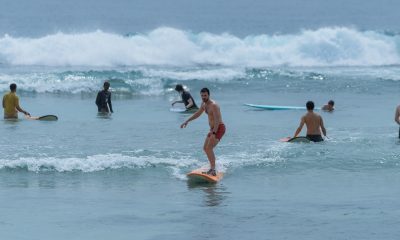
 Action1 week ago
Action1 week agoAtaraxis Grand & Spa hosts integrated work-and-dive corporate retreat in Fuvahmulah
-
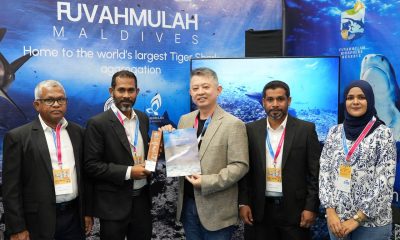
 Awards4 days ago
Awards4 days agoFuvahmulah receives Tiger Shark Dive Award at DRT Expo KL
-
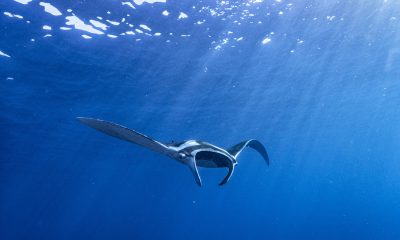
 Action1 week ago
Action1 week agoFour Seasons Landaa Giraavaru shares manta sightings forecast for 2026 and 2027
-
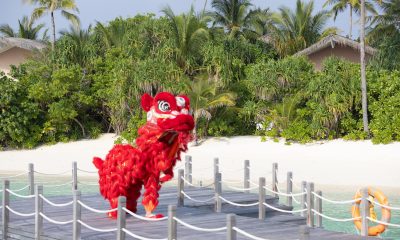
 Love1 week ago
Love1 week agoJW Marriott Maldives Resort & Spa invites couples to a season of romance and refined indulgence
-
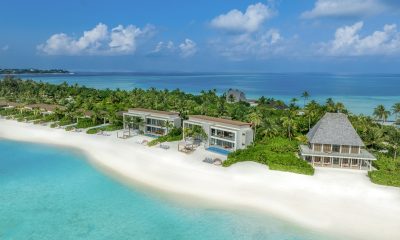
 News1 week ago
News1 week agoKuda Villingili Resort Maldives becomes part of Global Hotel Alliance network
-
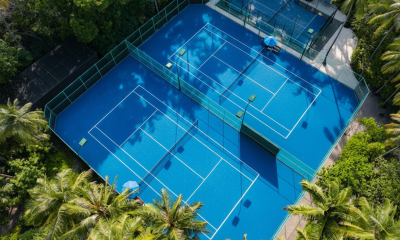
 Action5 days ago
Action5 days agoDusit Thani Maldives adds padel and upgrades sports facilities



